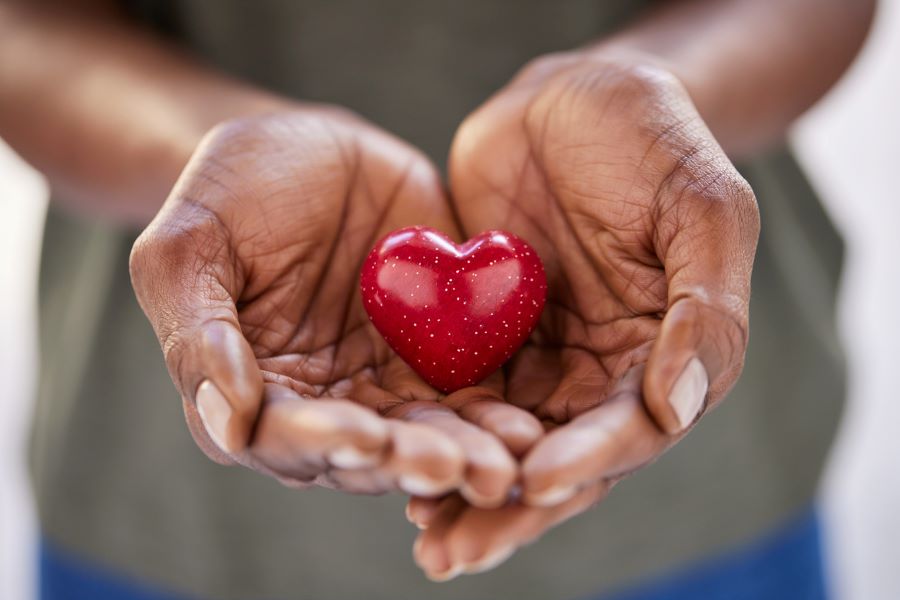Selflessness Is Golden
December is characterized by holidays and cultural celebrations—including Christmas (Christian), Hanukkah (Jewish), Rohatsu (Buddhism), Yule (Wicca/Pagan), Gita Mahotsav (Hindu), Kwanzaa (African American), and Ōmisoka (Japanese). Many such holidays and cultural celebrations are rooted in principles that resonate with believers of most faiths, and non-believers as well—love, caring, gratitude, and a sense of community.
In fact, the Parliament of World Religions has proclaimed that the Golden Rule—which says to treat others as you wish to be treated—is found in most of the world’s faiths and cultures. In 1993, the parliament stated that more than 140 religious leaders from faiths around the world endorsed the Golden Rule as part of its landmark document, “Declaration Toward a Global Ethic.”
December gives us ample opportunity to reflect upon the Golden Rule.
For most areas of the country—including the Pacific Northwest—December is when winter ushers in freezing temperatures, making it even more challenging for those experiencing homelessness.
As families and communities gather together this month in celebration, sharing gifts and meals, those experiencing food insecurity endure days of empty stomachs.
The end of December brings the hope of the new year, unless you’re among the many in our communities struggling to make ends meet when the rent comes due on the first of the month.
And while the December holidays and cultural celebrations are often characterized by goodwill toward our neighbors, they bring no relief from the kind of racism, hate speech, antisemitism, Islamophobia, xenophobia, and other identity-based oppressions that exist both at home and abroad.
Only when mutual understanding is achieved can there be authentic and meaningful dialogue. The importance of such trust and dialogue is keenly felt in times like ours of fear and suspicion of the other, nativism and exclusion, and the consequent breakdown of community. So, the building of community starts with creating and nurturing relationships of trust. The Golden Rule, thus, has fundamental importance in personal, social, and interreligious spheres.
The late Dr. Joseph Prabhu, former professor at California State University, Los Angeles, and board member of the Parliament of World Religions
So, if December would cause us to be more mindful of and dedicated to observing the tenet found in most faiths and cultures—to simply treat people as we would want to be treated—what would that look like in practice?
Or to put it another way: If you were one of the thousands of residents in King County currently facing the prospect of eviction and homelessness, what would you want done? If you were standing on a street corner hungry with a sign that read, “Anything Helps,” how would you want passersby to respond? If your community were the victim of a hate crime, how would you want the matter addressed?
At United Way of King County, we and our partners are committed to ensuring people have a safe place to call home, food to eat, a quality education, and access to resources. We advocate for policies that benefit all our neighbors and stand alongside communities victimized by hate and oppression. The more we do so, the more we embrace our common humanity and aspire to offer the same assistance we would want if we were in others’ shoes.
A few years ago, while stuck in bumper-to-bumper traffic on Interstate 5, I struck up a conversation with a woman walking along the freeway. She had a handwritten sign that offered blessings to those who passed by. Over time, I would see her along the highway again, and I offered her not only blessings but nourishment in the form of water and energy bars.
At United Way of King County, we and our partners are committed to ensuring people have a safe place to call home, food to eat, a quality education, and access to resources. The more we do so, the more we embrace our common humanity and aspire to offer the same assistance we would want if we were in others’ shoes.
United Way of King County president and CEO Gordon McHenry, Jr.
Subsequently, I learned that she had been placed on a long waiting list for supportive housing. Later, as the cold of December was upon us, I put together a care package of toiletries, socks, water, food, and other necessities with the hopes I would see her along the highway again.
And I did: On the last week before the Christmas holiday, I saw her standing along the freeway. We greeted each other, I received her blessing, and she accepted my blessing and my special gift. I don’t travel that route anymore, so I don’t know how she is doing. I hope that my respecting her humanity was a help—that treating her as I would want to be treated mattered.
December is a great time to remember that, when we live according to our shared values, our region and the world are better places to live. We at United Way come from various races, genders, ethnicities, regions, and cultures, and we come together with the shared belief that the power to think beyond ourselves—and to want the best for our neighbors—is the prerequisite for ensuring that we all have enough and are treated equitably
Let’s make this a reflection of our society and our region—not just in December but all times of the year.


Comments